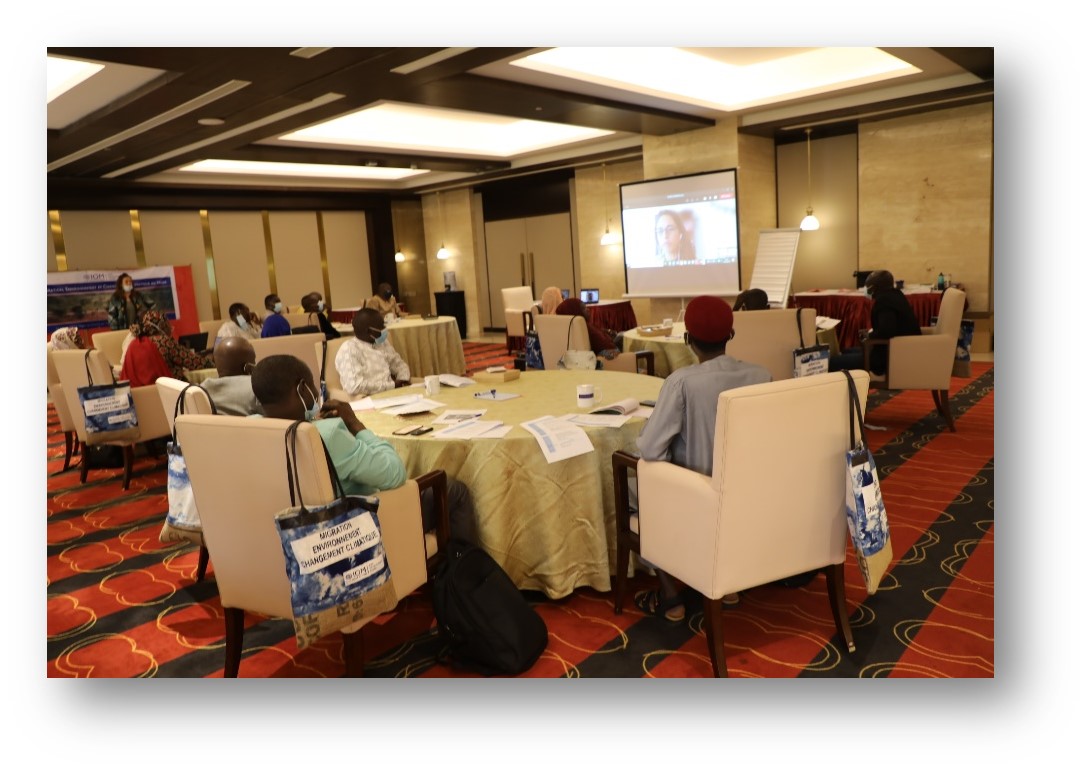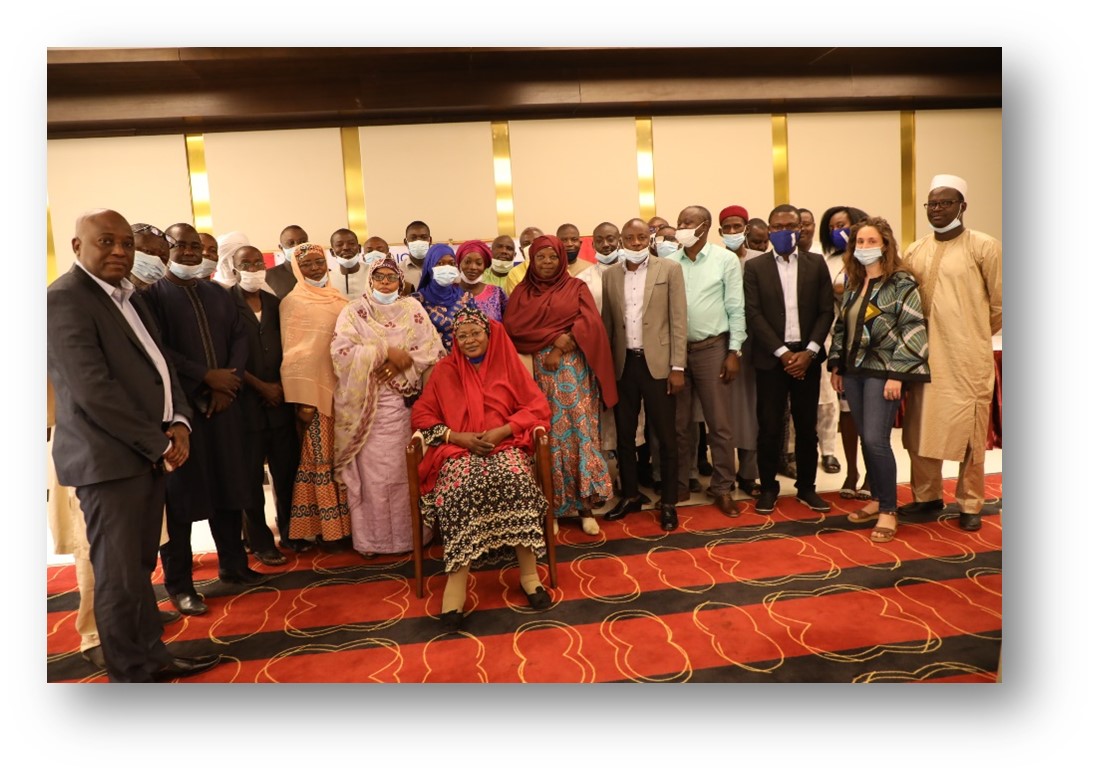-
Who We Are
WHO WE AREThe Environmental Migration Portal is a one-stop service website to promote new research, information exchange and dialogue, intended to fill the existing data, research and knowledge gaps on the migration, environment and climate change (MECC) nexus.
IOM Global
IOM Global
-
Our Work
Our WorkThe Environmental Portal aims to centralize relevant and up-to-date research, data, and information on migration, environment and climate change and
provide information on recent activities of IOM, including with its partners, in addressing the migration, environment and climate change (MECC) nexus.What we do
What we do
- Where We Work
- Data and Resources
- 2030 Agenda
Building key stakeholders’ capacities towards a better integration of the Migration – Environment and Climate Change nexus in public policies in Niger
-
Date
23 Jun 2021, 12:00pm
-
Location
Niamey, Niger
IOM Niger and its partners: the Ministry of Environment, the Prime Minister Office (Conseil National de Environnement pour un Développement Durable) and the Ministry of Interior organized a first workshop on Migration, Environment and Climate Change (MECC) on 23 March – 25 March 2021 in Niamey.
This 3-days-event intended to provide the 30 participants with the theoretical bases for a better understanding of the MECC nexus.
On the third day, field visits enabled the participants to relate the discussions and presentations to the realities on the ground, with a collegial view, transversal to the participants’ various mandates and areas of competence.
In addition to providing tools for key actors, this training also supported inter-ministerial and inter-sectorial dialogue between stakeholders from different backgrounds. Discussions and debates between national authorities, civil society organizations, researchers and private sector have made it possible to identify the blockages and opportunities that will feed the ongoing study on MECC aspects in Niger, as well as future interventions.
The training, coupled with the findings of the study, should subsequently support the formulation of recommendations for the integration of the MECC nexus in Niger public policies.


